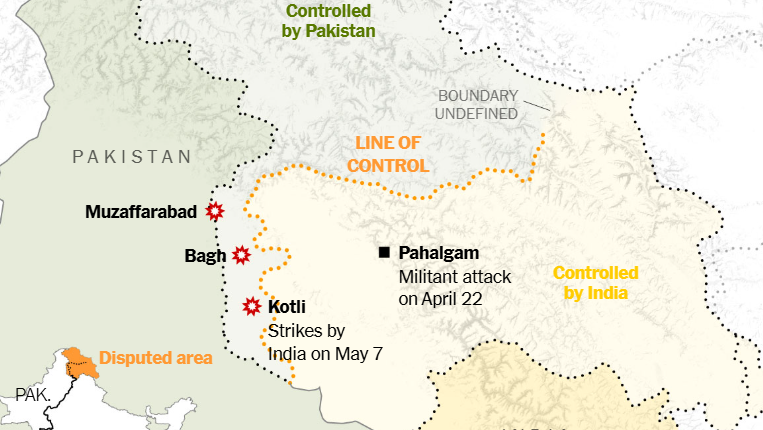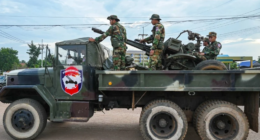India carried out a series of airstrikes across Pakistani territory early Wednesday in what it described as a targeted retaliation for a deadly terrorist attack that killed 26 civilians in Indian-administered Kashmir last month. The strikes mark a significant escalation between the two nuclear-armed neighbors, raising fears of a broader conflict.
According to Indian government sources, nine sites were hit — including locations in Pakistan-administered Kashmir and deep inside Pakistan’s Punjab Province. Officials stated that the operation, code-named “Sindoor,” was a “measured and responsible” action aimed at neutralizing “known terror camps.” They claim to have gathered evidence linking Pakistan-based militants to the April 22 massacre of tourists in Kashmir.
In response, Pakistan denounced the strikes as “an unprovoked and blatant act of war,” vowing retaliation “at a time and place of its own choosing.” Pakistani military officials reported that at least 20 people were killed and dozens injured in six areas hit, including Bahawalpur, Muridke, and Muzaffarabad — regions allegedly linked to militant groups like Jaish-e-Mohammad and Lashkar-e-Taiba.
The nature of the Indian operation remains under scrutiny, with conflicting reports about whether Indian aircraft crossed into Pakistani airspace. Pakistani sources claim Indian jets remained outside their airspace, while residents near Muzaffarabad reported hearing aircraft overhead.
Indian and Pakistani media reported at least two aircraft crashes — one in Indian-administered Kashmir and another in Punjab. Independent verification remains limited, though weapons analysts reviewing images from one wreckage site suggested the debris could be from a Mirage or Rafale fighter jet.
Cross-border shelling continued into Wednesday, with Indian officials confirming three civilian deaths and multiple injuries in the border districts of Uri and Poonch. Villagers are reportedly being evacuated to safer areas.
The escalation has drawn international concern. UN Secretary-General António Guterres urged both sides to exercise restraint, warning that “the world cannot afford a military confrontation between India and Pakistan.” At the White House, President Trump called the situation “a shame,” hoping for a swift resolution.
Analysts noted that India’s decision to target sites deep within Pakistan marks a departure from earlier post-attack responses in 2016 and 2019. With both countries now mobilizing air-defense systems and bracing for potential retaliation, regional stability hangs in the balance.









